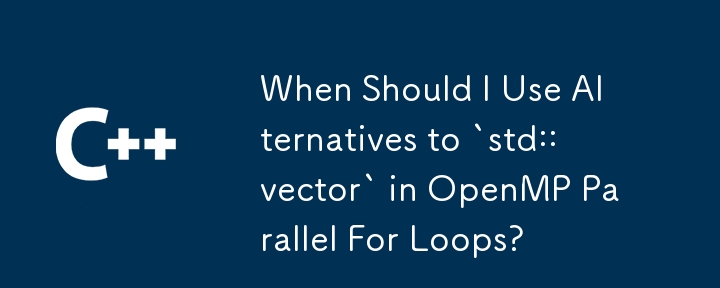

C OpenMP Parallel For Loop: Alternatives to std::vector
When working with parallel for loops in OpenMP, leveraging the shared memory model can be crucial for data access and manipulation. One common data structure used for this purpose is the std::vector, which provides dynamic array functionality. However, in certain scenarios, seeking alternatives to std::vector can offer performance benefits, especially when the vector requires resizing during the parallel loop.
One viable alternative is employing custom data structures specifically designed for parallel operations. One such data structure is a lock-free concurrent vector, which allows for concurrent access and modification by multiple threads without the need for explicit synchronization primitives. This eliminates the overhead associated with locks, improving performance in multi-threaded environments.
Another approach involves utilizing user-defined reductions in OpenMP. With this technique, the data is partitioned across threads, and each thread performs operations on its local portion. The results are then combined using a user-defined reduction operation. This method enables efficient and scalable parallel data processing, even for resizing vectors.
Additionally, it's important to consider strategies for ensuring data consistency when modifying shared data structures from multiple threads. One common pattern involves employing atomic operations, which guarantee that only one thread can access and modify a shared variable at a time. By atomically updating the vector, data integrity is maintained, preventing race conditions and data corruption.
In conclusion, while std::vector remains a powerful tool for data management in sequential code, exploring alternatives like lock-free concurrent vectors, user-defined reductions, and atomic operations can yield significant performance improvements in parallel for loops. By choosing the appropriate data structure and leveraging efficient synchronization mechanisms, developers can maximize the benefits of OpenMP parallelization and achieve optimal performance in their applications.
The above is the detailed content of When Should I Use Alternatives to `std::vector` in OpenMP Parallel For Loops?. For more information, please follow other related articles on the PHP Chinese website!




